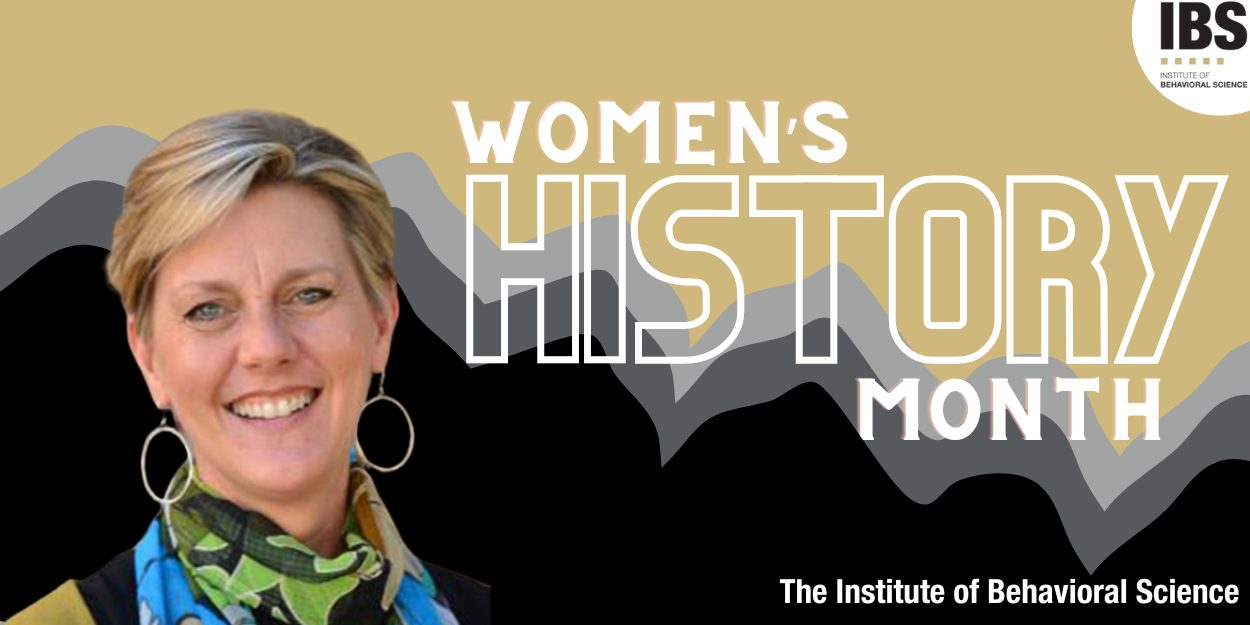Next up in our Women’s History Month celebration is Director of IBS, Lori Hunter! Lori shares about her history with IBS and CU Boulder, her vision for IBS, and hints at an exciting event for IBSers in the works.
_______
When did you join IBS?
Hunter: I came to CU Boulder in 2000, after four years as an assistant professor at Utah State University following my PhD at Brown in 1997. I have been an IBS Fellow since coming to CU Boulder. I was originally affiliated with the E&S Program given my work in environmental sociology, but I eventually was also affiliated with the Population Program given my training as a social demographer and my research on population-environment interactions.
What do you like most about being director of IBS?
Hunter: Being Director of IBS is my favorite job in 23 years at CU Boulder – actually, it’s my favorite job ever! I have loved becoming more familiar with all the important and innovative research across the Institute and I so appreciate having the opportunity to advocate on behalf of our investigators doing that important and innovative research. I also enjoy reaching across campus — and beyond — to think creatively about bridges we might build to enhance our research and our impact. Finally, I’ve also appreciated the chance to think carefully about how we do our business and how the Institute might better serve our investigators and better support our staff.
What’s something you’re most excited about for IBS?
Hunter: Potential. As I look to the future, I see an Institute that has been responsive to investigator and staff concerns and is poised to step into a future that includes even greater impact and innovation. There are partnerships just waiting to happen. Some are on the Boulder campus – Engineering, Earth Lab, RASEI, CNAIS, and more. Some are at the Colorado School of Public Health – environmental health, indigenous health, rural health, and more. Some are further afield and responsive to funding opportunities at NSF, NIH, and other agencies that are seeking to develop impactful national and international collectives on substantive areas like climate & health. It is my hope that the Institute can support investigators in developing these larger scale initiatives which hold the potential to enhance the sustainability and impact of our important efforts.
What’s one thing you hope never changes about IBS?
Hunter: Community. Even though we’ve been through challenging times, I think our topical foci bring people together out of a desire to expand knowledge and impact across a vast landscape of social challenges. I also hope we have a lot of fun bowling together! (I am hoping to schedule a bowling social later this month).
________
Stay tuned for a social invite from Lori, IBSers! And check back soon for another interview!

